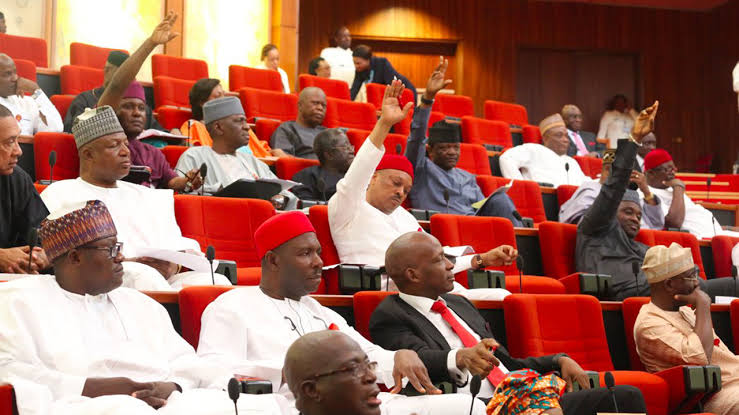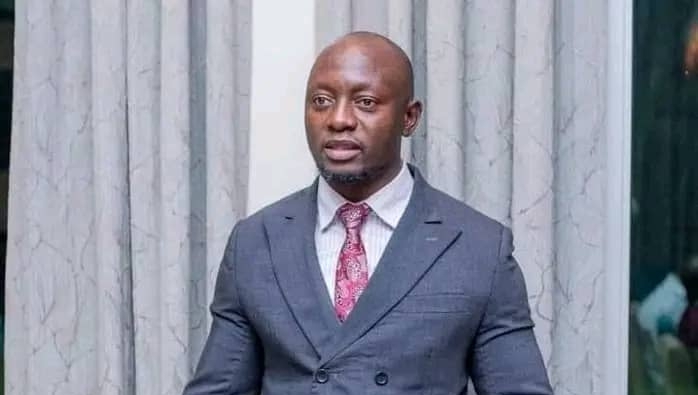Some Nigerians who are languishing in a prison in Libya have cried out for help following the harrowing conditions they have been subjected to.
In a distressing viral video circulating on social media, the Nigerian prisoners, including women, girls and children, lamented their suffering, including poor sleeping arrangements and unsanitary toilets, while an infant is seen looking emaciated and seem to be suffering from malnutrition.
In the video, the women are seen locked up in what appears to be a compound, chanting ‘we want freedom’ at the top of their voices.
The detainees revealed that they have been imprisoned for over a year and five months, alleging that the Nigerian government collected money from them but has provided no assistance.
They highlighted their dire situation and threatened to take drastic measures if no help is forthcoming, noting that while other nationalities are fleeing, Nigerians remain to uphold their country’s name.
“Freedom! Freedom!! Freedom!!! See where we are sleeping, we are suffering, see our toilets. Nigerian people are suffering. We have been here for over one year and five months,” one of the woman narrated.
“The Nigerian president has collected money from us. Our Nigerian president collected N1,500 from us and he is doing nothing. We are dying.
“Please we need help or else we are going to burst this place because all other nationalities are running away. We Nigerians stay calm because we want to protect our country and our names.
“Now if you are not taking any step, we are going to take a step by ourselves.
“Please come to our aid. Look at this place, we need help, we are suffering. Freedom! Freedom!!! Freedom!!!”
The video then panned into what looked like the sleeping area while the narrator continued.
“Look at where we are sleeping. We are suffering. We want freedom. We need your help, or else we will bust this place.’
Meanwhile, the Nigerians in Diaspora Commission (NiDCOM), has promised to wade into the matter with a vow to rescue the trapped Nigerians.
A statement issued by Abdur-Rahman Balogun, NIDCOM Director of Media, Public Relations and Protocols Unit, said the Commission has been alerted to the video and the situation will be looked into.
“While this video will be looked into, it is worth noting that over 10,000 Nigerians were evacuated from Libya a few years ago, based on a memo by Hon. Abike Dabiri-Erewa, approved by the then President and a coalition of multi-agency team set up to evacuate all Nigerians stranded in Libya.
“For the umpteenth time, there was a clear warning by Hon. Abike Dabiri-Erewa to Nigerians to desist from that dangerous path. But the warning was not yielded to.
“In the last couple of months, almost 4000 more have been brought back from Libya, thanks to the efforts of the International Organisation for Migration in Nigeria, which has been regularly evacuating Nigerians stranded in Libya back home.
“Sadly, many Nigerians continue to return to Libya and find themselves stranded again.
“It must be pointed out here that the Commission has brought the video to the attention of the office of the National Security Adviser who heads the multi-agency evacuation team as well as the International Organisation for Migration who has also rescued thousands stranded.
“However, we warn again that deadly pathways to migration must be avoided, and traffickers who traffic these victims need to be arrested, named and shamed.”
https://x.com/X_Dailly/status/1833436230333161897?t=nJO3Z8Or4p0e-CSTagBhtQ&s=19
In a post on X on Wednesday, Dabiri-Erewa also said:
“I was part of a team that went inside Libyan Prison to rescue over 10.OOO Nigerians in Libya, with a warning that they should desist. But they still return. Not even sure this is a new video because 140 were rescued again a few weeks ago by @IOM_Nigeria. The multi agency task force on evacuations will look into it. But Libya is to be avoided by irregular migrants. We warned severally.”

 Metro2 days ago
Metro2 days ago
 VenturesNow24 hours ago
VenturesNow24 hours ago
 Politics24 hours ago
Politics24 hours ago
 Sports22 hours ago
Sports22 hours ago






























